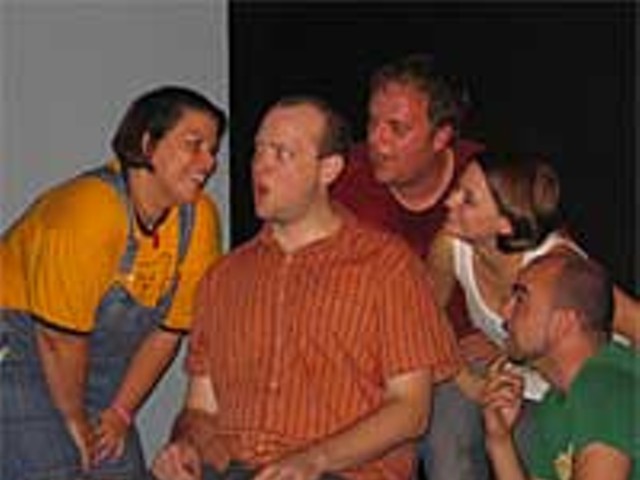How do Europeans manage to make such great coming-of-age films? While Americans can’t keep something like My So-Called Life on the air for more than a season, countries like France, Sweden and Italy are busy churning out little gems like this one, a movie that understands the angst of a shy, awkward 15-year-old girl without ignoring her parents’ struggles too.
Caterina in the Big City has a story line as old as time, or at least The Brady Bunch: A small-town teenager transfers to a new school and gets caught between rival cliques. What makes director Paolo Virzì’s movie different is that he understands there’s a world beyond the walls of his heroine’s classrooms.
The movie’s first scene doesn’t feature the title character at all: It opens with a headstrong teacher Giancarlo (Sergio Castellitto) berating his “idiotic” students on his last day. It’s hard to tell if he’s righteous, insane or some combination of the two. We soon learn the high-strung Giancarlo is uprooting his family — including his frazzled, ditzy wife Agata (Margherita Buy) and his bright but slightly naïve daughter Caterina (Alice Teghil) — from their sleepy Italian countryside town to Rome, where they’ll move in with a bedridden aunt.
Caterina learns quickly just how different big-city kids are. Plopped down in a class full of the daughters of novelists, politicians and aristocrats, she’s at first ridiculed for her “hillbilly” ways, and then used as a pawn in an upper-class popularity battle.
Her first confidante, the incense-burning, patchouli-wearing Margherita, introduces her to the music of Nick Cave, homemade tattoos and the leftist politics of her intellectual but irresponsible parents. After a war of words, Caterina abandons the “commie” kids for the decadent, shallow world of the rich girls, one of whom happens to be the daughter of a powerful right-wing politician. As the apolitical Caterina tries to process all the bad behavior around her, her father is awestruck by the rich and influential families she’s infiltrating — going so far as to force his sprawling, unpublished novel on all of them.
The movie’s central irony is that as Caterina matures, her father regresses. In moments both big and small, Virzì’s roving, observant camera captures the growing gulf between the two.
While some scenes are glimpsed from the girl’s limited point of view, there are others that don’t involve Caterina at all, such as the embarrassing, contentious meeting between Giancarlo and Margherita’s mother, an author. Virzì smartly underplays scenes that threaten to veer into melodrama, and he doesn’t take sides in the film’s left-wing-versus-right-wing subplot. Even the narration from Caterina’s diary is matter-of-fact, without the cutesy, Doogie Howser-ish tone common to most teen films.
Like a good novel, Caterina in the City manages to be satisfying without tying everything up in a neat bow — a lesson most American coming-of-age movies could stand to learn.
In Italian with English subtitles. Showing at the Detroit Film Theatre (inside the DIA, 5200 Woodward Ave., Detroit; 313-833-3237), at 7 and 9:30 p.m. Friday and Saturday, Oct. 7, and 8, and at 5 p.m. Sunday, Oct. 9.
Michael Hastings writes about film for Metro Times. Send comments to [email protected].





